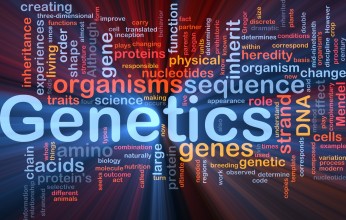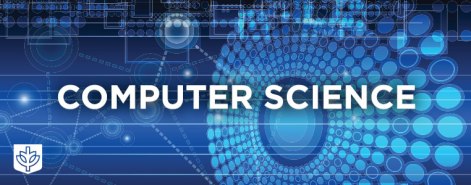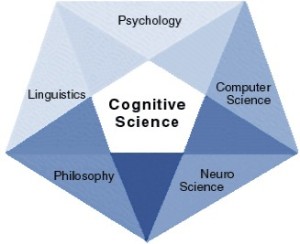Once again, I’ve interviewed another person on Reddit. This time it is Medical Lab Technician.
Tell me a bit about yourself? Age, sex, what country you live in, what you do for a living?
I’m a 20 year old, female biologically. I live in America, in New York City. I am a Medical Lab Technician and I’m currently attending school to get a Bachelor’s degree in Medical Laboratory Science.
My job is basically to collect and perform tests on blood, urine, or any other specimen that might come from a body. My job is a mix of microbiology (my personal favorite), chemistry, hematology, and immunohematology. If you’ve ever gone to the doctor and gotten blood work done, people like me are the ones who test it and get the results. It’s a really fun job, and getting to use all the machinery and microscopes makes me feel like a mad scientist sometimes! Plus, it really helps people, and that is one of the most important things to me.
Very interesting! Yes, I can imagine that this helps people a lot!
What made you want to go into this field?
I actually didn’t know what lab science was until I went to college. I had to pick a program for financial aid to be valid when I started college. I was only 16 when I applied and didn’t know much about career choices. It sounded like something I’d enjoy, and I was right! I can’t imagine doing any other job now that I’ve gotten into it. It’s a perfect fit.
Who are your favorite scientists?
I don’t know that I have a favorite scientist. I don’t follow scientific journals or anything like a sports fan might follow a favorite team. I suppose if I had to choose one, I would say Nikola Tesla.
Wow! Only 16 years old when you applied to college? Do you ever feel different than other people?
I did feel a little different towards the end of my associates program when all my classmates wanted to go out and celebrate graduation but I wasn’t old enough to drink with them. Mostly it was sort of cool being the youngest in class because I felt like I had accomplished something uncommon. The reason I started college so young is because I was homeschooled my last year of high school and I did 11th and 12th grade in 6 months each.
Can you explain some of the process that needs to be done when doing your job?
hen I go into work, some of the things I do include cleaning and running maintenance on the automation and running quality control. This is one of the most important parts of my job because it ensures that my instruments are working correctly and that the results I get are accurate. One of my favorite things to do is identifying microorganisms in the microbiology lab. When we get a culture from a wound or body fluid, we use it to set up cultures on different types of media. The next day, we can use the media growth and perform different tests with various chemicals, and based on the many reactions, we can determine which bacteria we have. It’s pretty amazing considering there are hundreds of possibilities and we can narrow it down to the species level. Part of it is done by instruments, but a lot of it comes down to remembering my education about what germs grow where, what they look like, and even how they smell. I’m like a medical detective.
Now that we are so technologically advanced, most other tests are run on machines, although in order to be certified we have to be able to do them all manually. A lot of the day is spent interpreting and reporting results, refilling reagents and calibrators, and getting all the samples on the right machines at the right time. There is a lot of multitasking going on all day.
How were you able to complete two grades in one year exactly?
The way my school was laid out, you got most of the credits you needed by 10th grade. You took 7 classes a year, and your senior year was essentially two required classes and a bunch of silly courses just because you have to be at school. I didn’t like that, and felt it was a waste of time. I felt like that was just one more year of a school I didn’t like, one more year I could be working and saving money, and one more year I had to wait to retire. Because I had been doing advanced courses since 8th grade, I only needed 1 class my senior year and 3 my junior year, so my mom, who is a former teacher, taught me at home. It took some convincing to get her to agree, but it turned out to be very beneficial for me in the long run. I’d only recommend it to students who can get all heir work done without much help, because it’s easy to just give up and drop out, but I feel like the extra responsibility helped me mature a lot quicker than my peers did just out of necessity.
Have you ever thought that you want to do this your whole life or would you want to move onto something a little different in a while?
I honestly don’t know where I’ll be 35 years from now. Maybe I will still be working at a hospital. Maybe I’ll move up to a supervisor position, but that doesn’t seem like me. I prefer to be hands on and in the front lines. If my life goes the way I plan, I will always be doing lab science at it’s core, but maybe I will move on to research and development or something more revolutionary. A definite goal of mine is to spend some time with Doctors without Borders, volunteering so those without reliable healthcare can get the care they need for free. Even if I stay just where I am now, I would be okay with that. I try to think of every patient that comes in as if they were my parent or sibling or grandparent. That makes the work I do mean a lot to me, because it means a lot to them and their loved ones.
Well, that’s really cool that you want to spend time with an organization that helps people. What do you think is the main problem with people not getting proper care? What advances can we make to improve those situations for people?
Well, obviously people not having medical care leads to poor quality of life and premature death when we are talking about it in a general sense. As it relates to my field, it is hard to provide anything more than general care without having test results to guide you toward a more specific health plan. In third world countries where people suffer from infections, diseases, etc. the difference in one result or another may be as large as completely different classes of medication. For example, just being able to tell whether someone has a typical Staphylococcus aureus or MRSA will tell you whether they can be treated with basic antibiotics or if they need IV aminoglycosides. In either scenario, the wrong treatment can easily result in death.
The best way to help people in these situations is to volunteer if you are able, and if not, a donation can go a long way. Even with volunteers offering their services for free, there is no way for us to get the equipment we need for tests or treatment without paying for it. A $10 donation could pay for a bottle of penicillin and save a life.



